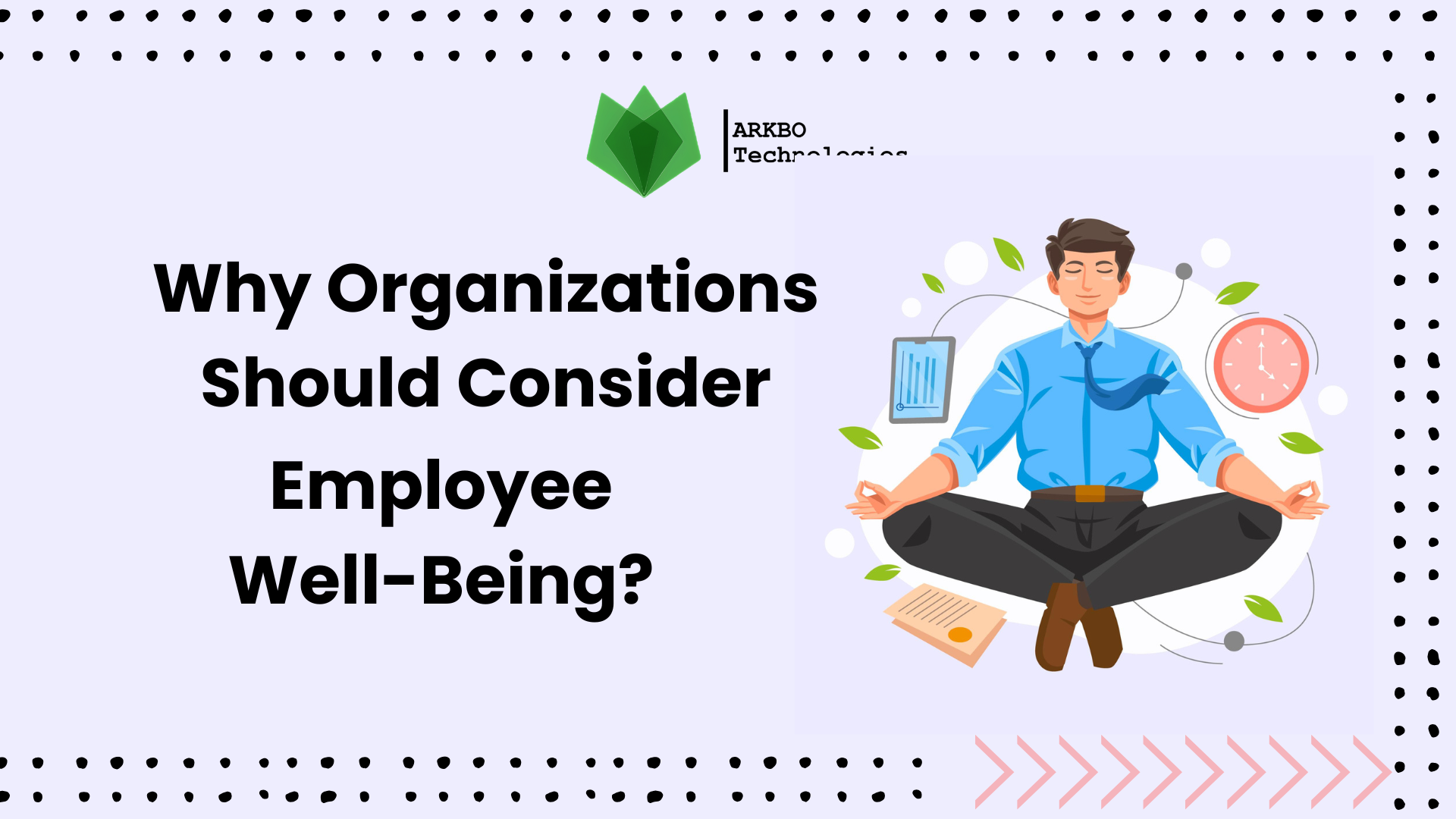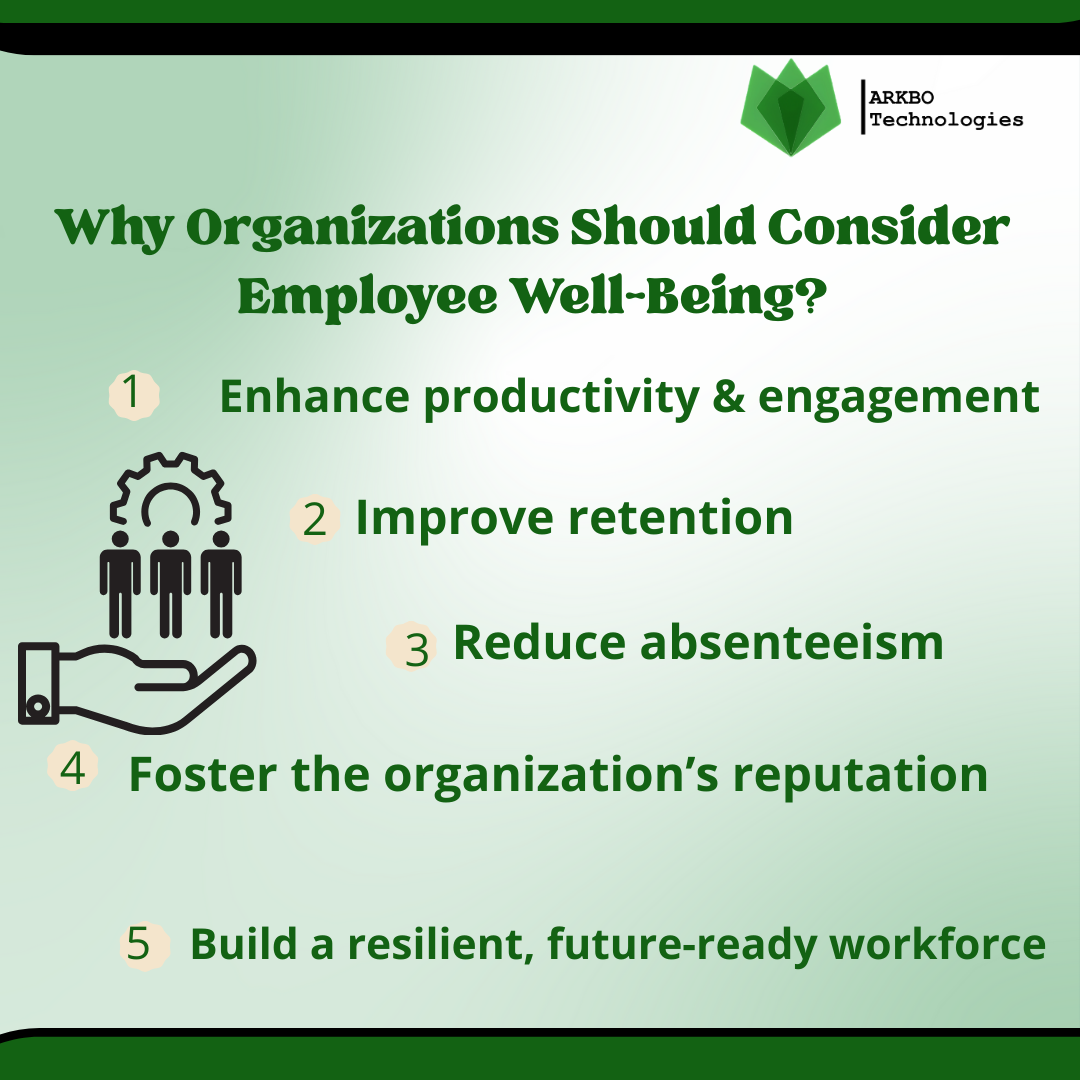
In recent years, work culture has undergone significant changes. Employees face unique challenges that go beyond traditional job responsibilities. Thus, employees should be given more than salaries, appraisals, and other simple facilities. In fact, employee well-being has to become another prime focus at work. They are a must-have for your workforce. In this blog, we will dive deep into why companies must focus on employee well-being in 2025.
Employee well-being refers to the overall health and happiness of employees, which covers physical, mental, emotional, financial, and social aspects of their lives. It is all about creating an ideal workplace environment that makes the employees feel supported, valued, and motivated.
Do you know?
Research by the McKinsey Health Institute in collaboration with the World Economic Forum indicates that global employee well-being could generate up to $11.7 trillion in economic value worldwide, highlighting well-being as a strategic business necessity.
Let’s look into the major aspects of workforce well-being.
Physical Health and Fitness
Employee physical fitness keeps them energetic. They should be encouraged to exercise, eat proper nutrition, and get regular rest. In an organization, simple initiatives like providing healthy snacks, step challenges, or offering gym discounts can aid in improving employees’ physical health.
Mental and Emotional Health
Just like physical health, mental health is crucial for employees. The employees increasingly face work-related stress and burnout, which can lead to poor mental fitness. Thus, employers should provide resources such as counseling, Employee Assistance Programs (EAPs), or training in stress management and mindfulness.
Financial Security
Employees seek greater financial security. The organization can offer financial literacy programs, salary transparency, and access to financial planning tools; these facilities reduce stress and help employees feel more secure.
Social Belonging and Connection
Humans thrive on human connection. When organizations promote a culture of collaboration, inclusion, and recognition, it strengthens relationships and helps employees feel a sense of belonging. Activities such as team-building, mentorship programs, and open communication channels are key to building connections.
Let’s get into a detailed explanation of why employee wellness even matters to companies.

Whether it's launching a new system in the workplace or any corporate recreational activity, employees must be motivated to do so. Employees give their 100% for these activities when they are happy and healthy. They are more focused, creative, and engaged in their work, and are driven to achieve goals. Such employees show greater interest in innovation, improving overall quality outcomes.
According to the Global Wellness Institute, companies prioritizing employee wellbeing report up to 20% higher productivity.
When employees receive adequate support, they tend to be more engaged and devoted to their work. A constructive work environment not only fosters growth, but it also leads the employee to complete their tasks. Such an urge makes the employees be more punctual be present in the office. This leads to achieving desired project goals. Moreover, organizations that prioritize employee well-being experience faster completion of projects and attainment of business goals.
When organizations focus on improving their employees' well-being, the workers can exhibit greater loyalty. A study conducted by Gallup revealed that employees who perceive their employer as supportive of their well-being are 69% less inclined to actively seek alternative employment.
Also, companies that implement robust wellness initiatives distinguish themselves in the job market. This facilitates the attraction of skilled professionals towards the company and its nurturing and health-conscious workplace culture.
When a company focuses on workforce well-being, it shows that the company values more than profits. Such kind of effort makes the employee speak highly of the company. Such word-of-mouth enhances the organization’s reputation in the market.
When the workforce is supported for their well-being, they become more adaptable, motivated, and resilient. In times of uncertainty or change, such employees can recover quickly and maintain their focus on attaining objectives. In fact, investing in well-being not only enhances current performance but also equips employees to excel in the future.
Overall, safe, inclusive, and psychologically healthy workplaces aid in increasing employee retention, performance, and foster a sense of belonging. Moreover, organizations embedding wellbeing into culture and governance see sustainable positive impacts (Global Wellness Institute).
Understanding workforce well-being isn't just enough; it has to be implemented if you want them to bring the best performance. Here are 3 major strong strategies that foster employee wellness in the company.
Flexibility is one of the most effective ways to reduce workplace stress. Employers can offer a remote working style, flexible hours, or compressed workweeks. With such working styles offered, employees can balance their personal and professional lives more effectively.
Employee growth is directly linked to their sense of well-being. With platforms like Learning Management System, organizations can provide training. Such training covers not only job-related skills but also personal development areas such as time management, mindfulness, and work-life balance. This creates a supportive learning environment that benefits both employees and the company.
A workplace with a toxic work culture always has issues of harassment, bullying, ineffective management, and a lack of trust. These issues can bring stress, burnout, and health issues like insomnia and depression, diminish motivation and engagement (Qualtrics). When workplace toxicity is eliminated, employees experience a sense of value, security, and reduced stress, which in turn enhances both their well-being and productivity (PMC).
89% of employees with mental health issues report work impairment, and over half have considered quitting due to stress (Spill Chat). Thus, offering help to improve mental health can be another strategy for employee wellness. Employers can provide access to counseling, hotlines, or wellness apps so that employees can have the opportunity to achieve better mental health.
Organizations can also integrate mental health awareness into learning and training platforms like ARKBO LMS, offering sessions on stress management, emotional intelligence, and coping strategies.
When employees get chances to learn and improve, they feel more confident, motivated, and happy in their jobs. ARKBO LMS helps companies offer more than just work-related training. Employees can take courses on time management, mindfulness, and work-life balance. This platform offers inclusive training for your workforce so that every employee gets a fair opportunity to train and improve their working skills.
ARKBO LMS also supports mental health as part of the learning journey. Employees, along with leaders and decision-makers, can access content on emotional wellness, resilience, and adaptability. This leads to a team that is healthier, more engaged, and ready for long-term success.
Employees are your most valuable asset; organizations must take care of them. In fact, they must implement employee well-being. Employee wellness is more than just a workplace trend; it’s a must-have for every business.
Workplace wellness must be a part of a business strategy for long-term success. Organizations that invest in their employees’ health, happiness, and growth build stronger teams, reduce turnover, and increase productivity.
By focusing on flexible work, mental health, positive culture, and continuous development through tools like ARKBO LMS, companies can create workplaces where people thrive
Read More: ARKBO LMS is the Best LMS in Nepal: 10 Reasons to Support